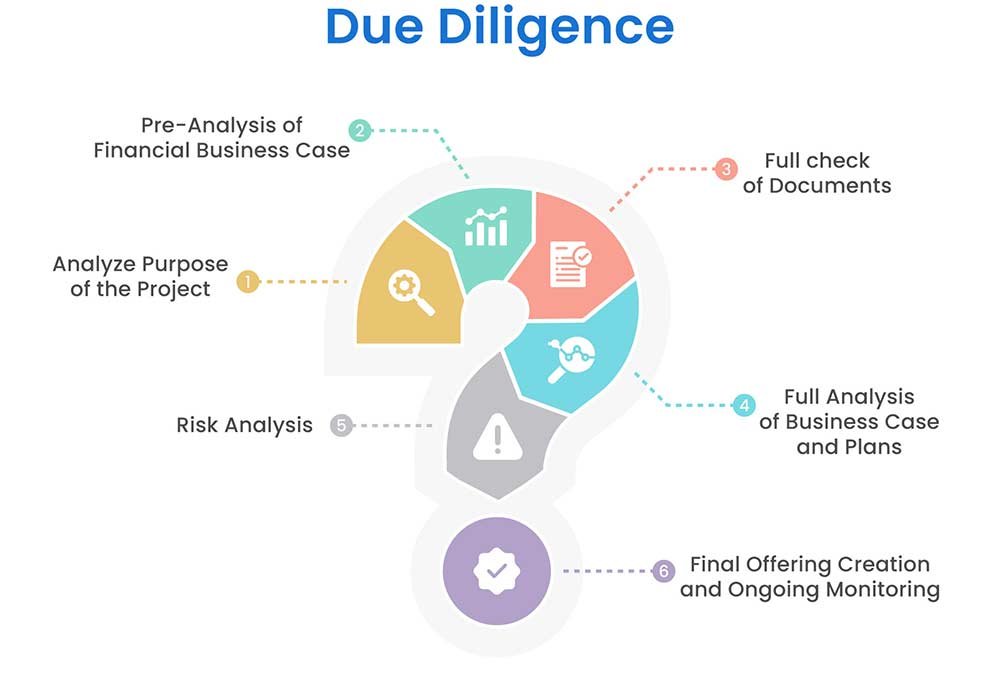Due Diligence Before Auction Participation in Commercial Land Buying
Introduction
Participating in a commercial land auction is a strategic move that can yield substantial rewards—but only when approached with careful preparation. At the core of successful bidding lies due diligence, the investigative and verification process a buyer undertakes before entering the auction. Unlike traditional real estate transactions, auction purchases are typically “as-is, where-is”, meaning the buyer assumes all risks related to the land’s legal status, physical condition, and financial liabilities. Moreover, auctions move quickly and often require firm commitments with limited room for renegotiation. Hence, pre-auction due diligence becomes the most critical safeguard in minimizing risk, uncovering hidden issues, and forming a confident bidding strategy. This article outlines the key components and importance of conducting thorough due diligence before participating in any commercial land auction.
1. Legal Title Verification and Ownership Check
The first and most vital step in pre-auction due diligence is to verify the title and ownership status of the land. The bidder must ensure that the seller, be it a bank, government agency, or court, is legally authorized to auction the property. The title deed, sale deed, encumbrance certificate (EC) for at least 30 years, and mutation records must be reviewed to confirm an unbroken chain of ownership. If the land has passed through multiple hands or is part of an inheritance or partition, any missing documentation or unresolved claims can jeopardize future ownership. Buyers should engage a real estate attorney to conduct a formal title search and check for litigation, third-party claims, or stay orders.
2. Encumbrance and Liability Assessment
Auctioned commercial land may carry unpaid dues, loans, or encumbrances from the previous owner. These include property taxes, electricity bills, water charges, land use violations, or court judgments. While the auction notice may declare the land as “free of encumbrances,” buyers must independently verify this claim by obtaining records from the sub-registrar’s office, local municipal corporation, and revenue department. It is also important to verify whether the auction includes liability waivers or indemnity provisions. If not, the buyer may become responsible for clearing historical debts, which can add significantly to the acquisition cost and delay land possession.
3. Zoning, Land Use, and Regulatory Compliance
Zoning status and land use permissions directly affect the developability and profitability of commercial land. Due diligence must include verification with the local urban development authority or municipal planning office regarding the current land classification—whether it is zoned as commercial, industrial, agricultural, or mixed-use. Buyers must also check for master plan alignment, floor space index (FSI) regulations, and setback norms. Properties located near highways, eco-sensitive zones, or protected heritage sites may have development restrictions that impact long-term usability. Ignorance of zoning restrictions can result in fines, construction halts, or litigation after purchase.
4. Physical Inspection and Survey Validation
A physical site inspection is another key element of due diligence. It helps verify the actual location, dimensions, and condition of the land against auction documents. Issues such as encroachments, informal settlements, illegal structures, boundary disputes, or terrain instability often surface only during on-site visits. Buyers should also verify access roads, utility connections, drainage, and surrounding infrastructure, especially for commercial or industrial purposes. If possible, a licensed land surveyor should be engaged to match the property’s survey numbers, boundary markers, and topography with official records. Photographic evidence from the site visit should also be retained for reference.
5. Review of Auction Terms and Payment Obligations
Before bidding, a prospective buyer must understand all terms and conditions stated in the auction notice or legal pack. This includes the earnest money deposit (EMD) amount, minimum bid increment, payment timelines, forfeiture clauses, and conditions of sale. Some auctions require full payment within 15 to 30 days of the winning bid, with penalties for delays. Others may allow time extensions at an additional cost. Additionally, buyers must determine whether stamp duty, registration charges, and transfer taxes are included or payable separately. Reviewing these details helps avoid misunderstandings and prepares the buyer for immediate compliance if they win the auction.
6. Market Valuation and Comparative Price Analysis
Although auction prices are often lower than market rates, buyers should conduct an independent valuation of the property to avoid overbidding. This includes comparing recent sales of similar land parcels in the same locality, evaluating market trends, and understanding the commercial value of the area. Hiring a certified valuer can help establish a fair market value (FMV) and guide the bidder in setting a maximum bid ceiling. This is particularly important in high-demand auctions, where bidding competition may drive prices above rational thresholds. Without this reference, the buyer risks emotional overbidding and compromising profitability.
Conclusion
Due diligence is not just a formal checklist—it is the backbone of a smart auction strategy in commercial land buying. It empowers the bidder with factual clarity, risk awareness, and confidence, while significantly reducing the chances of post-acquisition surprises. From legal title checks and liability assessment to physical inspection and market analysis, each step must be approached with professionalism and precision. Auctions offer lucrative investment avenues, but only those who investigate thoroughly and plan ahead can truly capitalize on the opportunity. By investing time and effort in due diligence before the auction, buyers can secure high-value assets with peace of mind and long-term returns.
Hashtags
#DueDiligence #AuctionTips #AuctionPreparation #RealEstateAuction #BidSmart #InvestmentStrategy #ResearchBeforeBidding #AuctionSuccess #PropertyInvesting #FinancialLiteracy #RiskManagement #AuctionAdvice #KnowBeforeYouBid #SmartInvesting #RealEstateInvesting #AuctionProcess #BuyerEducation #InvestmentDueDiligence #PropertyAuction #AuctionReady #BiddingStrategy #FinancialPlanning #RealEstateTips #AuctionInsights #InformedBidding




